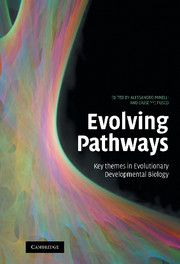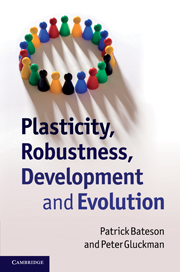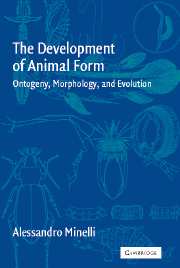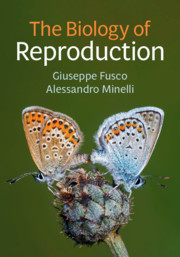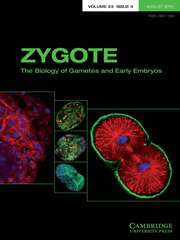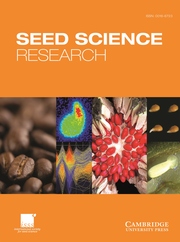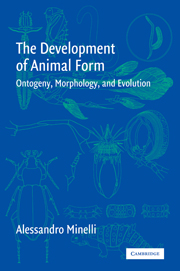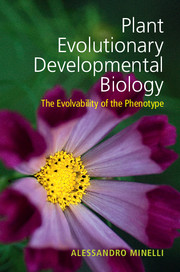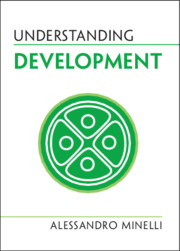Evolving Pathways
Evolutionary developmental biology, or 'evo-devo', is the study of the relationship between evolution and development. Dealing specifically with the generative mechanisms of organismal form, evo-devo goes straight to the core of the developmental origin of variation, the raw material on which natural selection (and random drift) can work. Evolving Pathways brings together contributions that represent a diversity of approaches. Topics range from developmental genetics to comparative morphology of animals and plants alike, and also include botany and palaeontology, two disciplines for which the potential to be examined from an evo-devo perspective has largely been ignored until now. Researchers and graduate students will find this book a valuable overview of current research as we begin to fill a major gap in our perception of evolutionary change.
- Contributors include more than 20 leading scientists in evolutionary developmental biology, to provide a structured overview of the broad range of approaches to study in evo-devo
- Includes contributions from botany and palaeontology, two disciplines for which the potential to be examined from an evo-devo point of view has been largely ignored until now
- Provides critical assessments of materials and methods in evo-devo research, including criteria for selecting new model organisms
Product details
January 2008Hardback
9780521875004
446 pages
229 × 152 × 25 mm
0.76kg
Available
Table of Contents
- Preface
- Introduction: pathways of change
- Part I. Thinking about Evolution by Taking Development Seriously:
- 1. Evo-devo as a discipline Gerd B. Müller
- 2. Making evolutionary predictions about the structure of development and morphology: beyond the neo-Darwinian and constraints paradigms Isaac Salazar-Ciudad
- 3. Conflicting hypotheses on the nature of mega-evolution Wallace Arthur
- 4. Prospects of evo-devo for linking pattern and process in the evolution of morphospace Paul M. Brakefield
- 5. The molecular biology underlying developmental evolution Claudio R. Alonso
- 6. Evo-devo's identity: from model organisms to developmental types Ronald A. Jenner
- Part II. Evo-Devo - Materials and Methods:
- 7. A pragmatic approach for selecting evo-devo model species in Amniotes Athanasia Tzika and Michel C. Milinkovitch
- 8. On comparisons and causes in evolutionary developmental biology Gerhard Scholtz
- 9. Evolution and development: towards a synthesis of macro- and micro-evolution with ecology Hans Zauner and Ralf J. Sommer
- 10. When is a hox gene not a hox gene? The importance of gene nomenclature David E. K. Ferrier
- 11. Plants are used to having identity crises Rolf Rutishauser, Valentin Grob and Evelin Pfeifer
- Part III. Evolving Diversity:
- 12. Unravelling body-plan and axial evolution in the bilateria with molecular phylogenetic markers Jaume Baguñà, Pere Martinez, Jordi Paps and Marta Riutort
- 13. Are transposition events at the origin of the bilaterian hox complexes? Jean S. Deutsch and Philippe Lopez
- 14. Many roads lead to Rome: different ways to construct a nematode Einhard Schierenberg and Jens Schulze
- 15. Basal Euarthropod development: a fossil-based perspective Nigel C. Hughes, Joachim Haug and Dieter Waloszek
- 16. Developmental transitions during the evolution of plant form Jane A. Langdale and C. Jill Harrison
- Part IV. Evolving Body Features:
- 17. Urbisexuality: the evolution of bilaterian germ cell specification and reproductive systems Cassandra G. M. Extavour
- 18. Thoughts and speculations on the ancestral arthropod segmentation pathway Ariel D. Chipman
- 19. Evolution of neurogenesis in arthropods Angelika Stollewerk
- 20. Arthropod appendages: a prime example for the evolution of morphological diversity and innovation Nikola-Michael Prpic and Wim G. M. Damen
- 21. Ontogeny of the spiralian brain Claus Nielsen.

